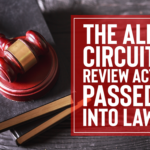Rewards for Success
Just as our compensation is contingent on the outcome of any case, the amount that a relator may recover is contingent on a recovery by the government. The amount that the relator can receive in a False Claims Act case (and under some other agency programs) most often ranges from 15% to 30%, depending on whether the government intervenes in the case and the extent to which the whistleblower substantially contributes to the prosecution of the action.
If the government intervenes in a False Claims Act case, a successful relator will receive between 15% and 25% of the amount recovered by the government. The exact percentage is usually negotiated with the government at the conclusion of a successful case and will depend on the relator’s substantial contribution to the litigation. If the percentage cannot be agreed upon by negotiation, the court will be asked to decide the matter. The Department of Justice reports that the average relator’s share award is approximately 15% of the amount recovered by the government.
If the government does not intervene in the False Claims Act case and the relator continues the action to a successful outcome, the relator will be entitled to between 25% and 30% of the amount recovered for the government. At first glance, it may seem more profitable for a relator to pursue a case without the government’s assistance, but practical reality dictates otherwise. The government’s participation is like having the proverbial 800-pound gorilla on your side. As a result, the vast majority of successful False Claims Act cases occur when the government opts to intervene in the case.
Being a whistleblower is stressful. We are here to help. You don’t need to go it alone.
Notably, there are circumstances in which a False Claims Act relator may be entitled to receive less than 15% of the amount recovered by the government. If the relator’s suit is one that is found to be “based primarily on disclosures of specific information” relating to allegations or transactions from public sources (other lawsuits, government hearings or investigations, or news reports), the relator may be entitled to no more than 10% of the proceeds of the case.
If the person bringing the case is one “who planned and initiated the violation” of the False Claims Act, the relator’s share also may be reduced “to the extent the court considers appropriate . . . taking into account the role of that person in advancing the case to litigation and any relevant circumstances pertaining to the violation.”
Finally, if a relator is convicted of criminal conduct arising from his or her role in violating the False Claims Act, the relator will be dismissed from the qui tam case and will not receive any share of the proceeds received by the government.
To give you an idea of how the relator’s share award is determined, here is a typical example. Assume that you file suit against a healthcare provider or defense contractor and after several years of assisting the government with its investigation, the government decides to intervene in the case and successfully negotiates a settlement with the defendant. The defendant agrees to pay the government $10 million for its violations of the False Claims Act. Absent unusual circumstances, you will be entitled to recover at least 15%, or $1.5 million, and as much as 25%, or $2.5 million. Obviously, if the recovery is for a different amount, the amount of the relator’s share will vary proportionately.
If you have any questions about the bounty award available to whistleblowers, we are happy to answer your questions. Just visit our Contact Us page to arrange a free consultation.



